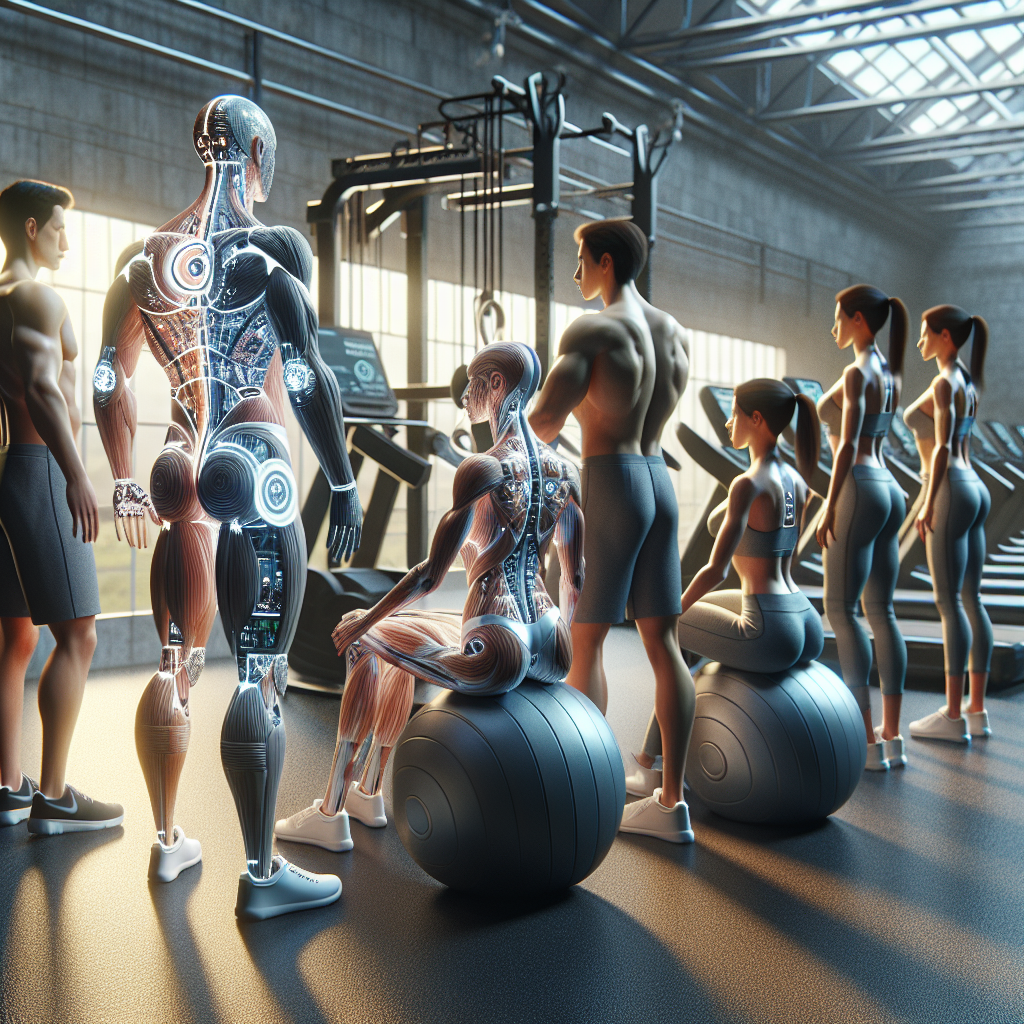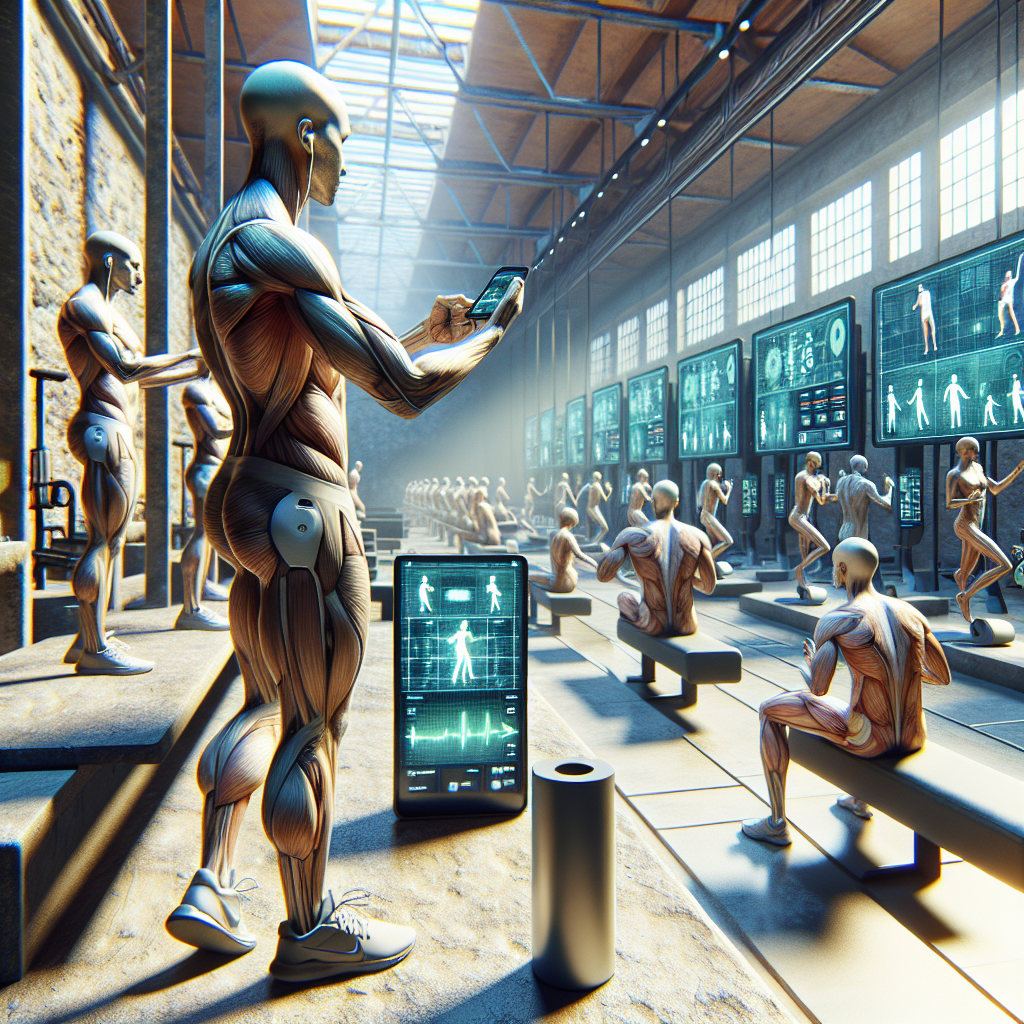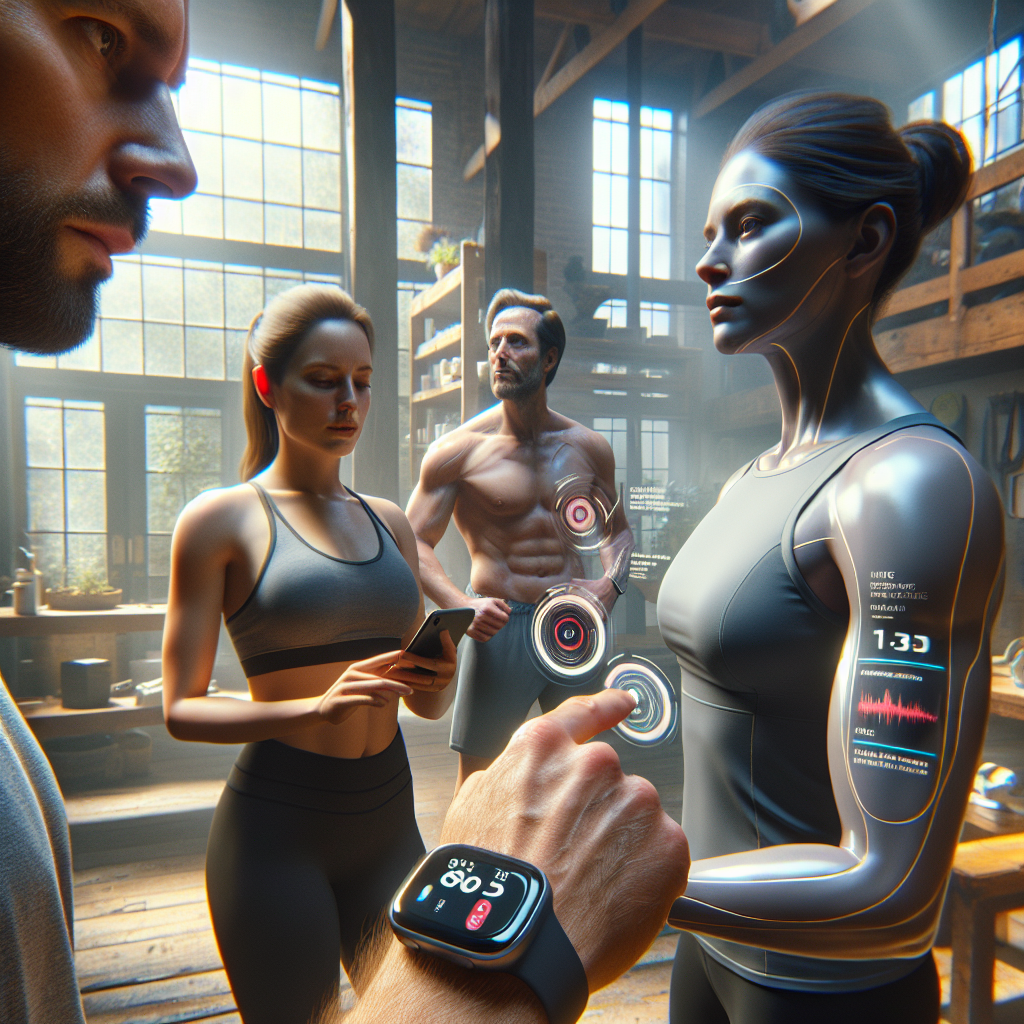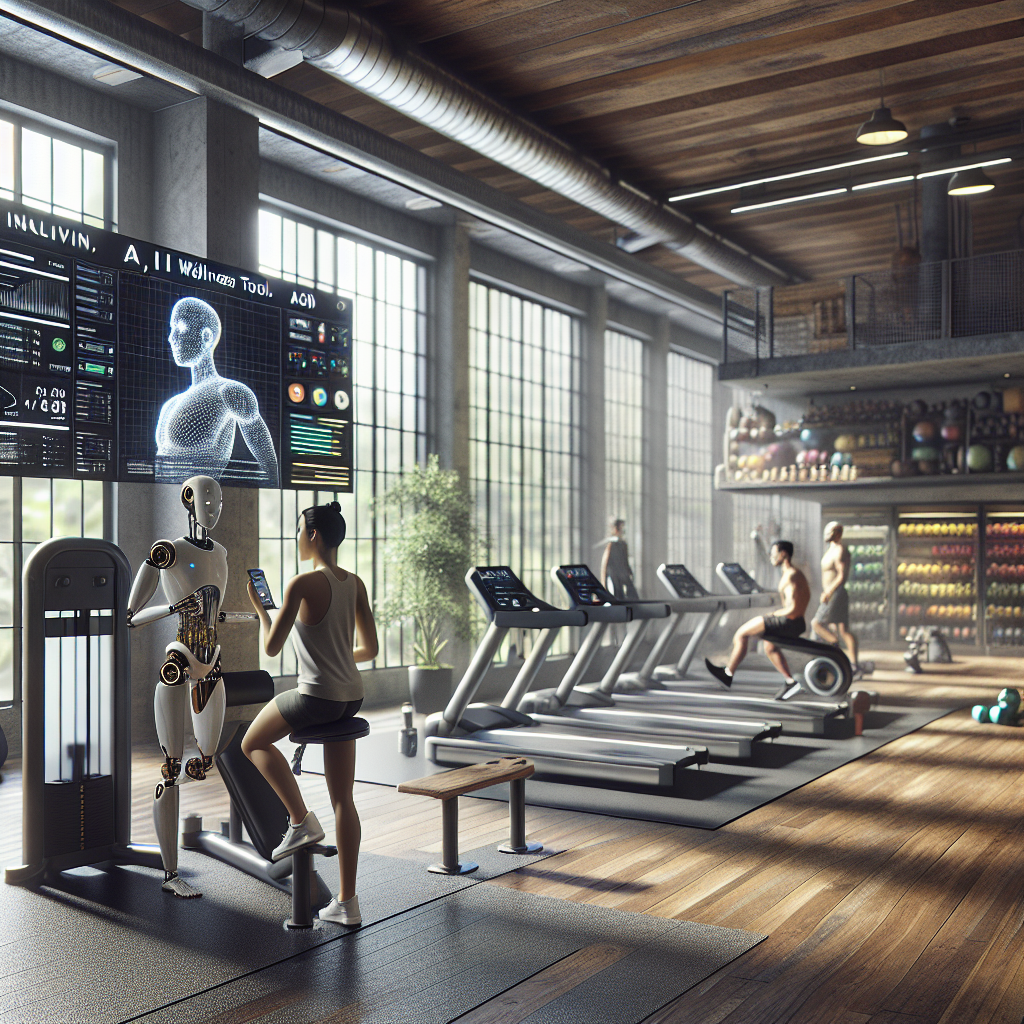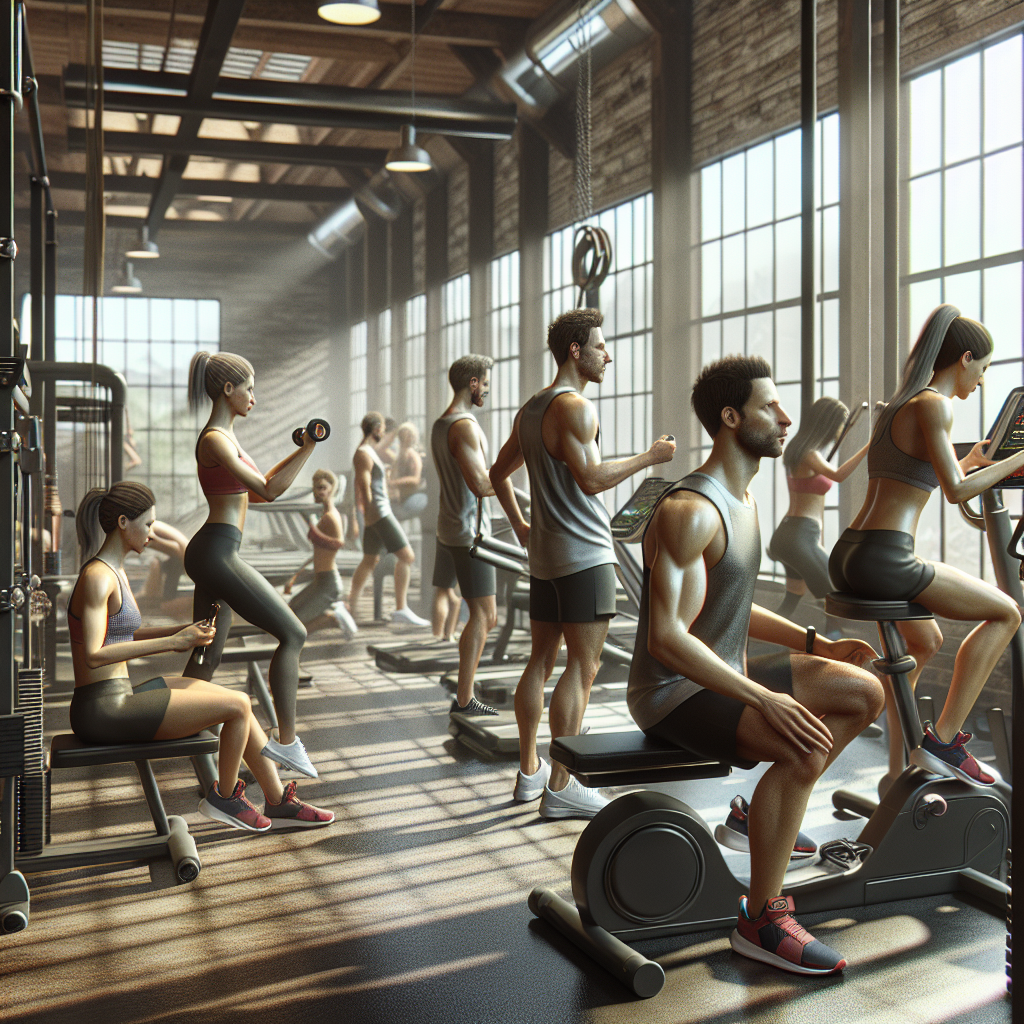In recent years, AI-enhanced gym equipment has transformed the personal fitness landscape by offering more personalized, efficient, and adaptive workout experiences. These advancements leverage artificial intelligence to tailor exercise routines, track progress with precision, and provide real-time feedback. As a result, fitness enthusiasts can achieve their goals more effectively and enjoy a customized approach to health and wellness. This article delves into the revolutionary impact of AI on gym equipment, exploring its features, benefits, and the future of personal fitness.
The Rise of AI in Fitness Equipment
The integration of AI in fitness equipment is not merely a trend; it’s a significant shift in how individuals approach exercise and wellness. The deployment of artificial intelligence in gyms and home fitness setups has been driven by the demand for more personalized and effective workout solutions.
Understanding AI in Fitness
Artificial Intelligence, in the context of fitness, refers to the use of machine learning algorithms and data analytics to enhance workout efficiency and personalization. These technologies analyze user data, such as physical metrics and workout history, to offer tailored exercise plans and real-time feedback.
Key Features of AI-Enhanced Gym Equipment
- Personalized Workout Routines: AI systems use data to create custom exercise plans that suit the user’s fitness level, goals, and preferences.
- Real-Time Feedback and Adjustments: Sensors and AI algorithms provide immediate feedback, helping users maintain proper form and adjust intensity as needed.
- Progress Tracking: Detailed analytics track performance over time, offering insights into improvement areas and milestones.
- Virtual Coaching: Many AI-enhanced machines come with virtual coaching features, simulating the experience of a personal trainer.
Benefits of AI-Enhanced Gym Equipment
Enhanced Personalization
AI-enabled machines adapt to the individual needs of each user, ensuring that workouts are both challenging and accessible. This personalization is achieved through advanced algorithms that analyze a wide range of data points, including past performance, biometric feedback, and individual fitness goals.
Improved Efficiency and Effectiveness
By providing tailored workout plans and real-time feedback, AI-enhanced equipment helps users exercise more efficiently. This leads to better results in less time, making workouts more effective and reducing the risk of injury.
Data-Driven Insights
AI gym equipment collects and analyzes vast amounts of data, offering users valuable insights into their fitness journey. These insights help individuals understand their strengths and weaknesses, set realistic goals, and track progress with precision.
Accessibility and Flexibility
With AI technology, users can access high-quality workout experiences from the comfort of their homes, removing barriers such as travel time and gym accessibility. This flexibility is particularly beneficial for those with busy schedules or who live in remote areas.
Top AI-Enhanced Gym Equipment
AI Treadmills
Modern treadmills equipped with AI technology offer more than just a running surface. They adjust speed and incline automatically based on the user’s heart rate and endurance level. Some models even provide virtual scenery to enhance the running experience.
Example: Peloton Tread+
The Peloton Tread+ uses AI to offer live and on-demand classes, adjusting the treadmill settings to match the workout’s intensity. It also tracks metrics such as cadence and stride length to improve running efficiency.
Smart Exercise Bikes
AI-powered exercise bikes adjust resistance based on the rider’s performance and offer interactive workout programs. These bikes often feature virtual coaching and community challenges to keep users motivated.
Example: NordicTrack S22i
The NordicTrack S22i uses iFit technology to provide immersive workouts, with trainers adjusting resistance and incline in real-time. The bike’s AI capabilities ensure a challenging and varied workout every time.
AI-Assisted Weight Machines
Weight machines with AI integration provide automated resistance adjustments and form guidance. These machines help users target specific muscle groups accurately and safely.
Example: Tonal
Tonal is a compact home gym system that uses AI to adjust digital weights in real-time. Its sensors and algorithms provide feedback on form and suggest weight adjustments to optimize strength training.
The Future of AI in Personal Fitness
Continual Advancements in Technology
As AI technology continues to evolve, we can expect further enhancements in gym equipment. Future developments may include more sophisticated biometric sensors, deeper data analysis capabilities, and even more personalized workout experiences.
Integration with Wearable Technology
The integration of AI gym equipment with wearable devices will provide a comprehensive view of a user’s health and fitness. This synergy will enable more accurate tracking of metrics such as sleep quality, stress levels, and recovery times.
Virtual Reality and Augmented Reality Workouts
The combination of AI with VR and AR technologies holds the potential to create immersive and engaging workout experiences. These technologies can simulate various environments and scenarios, making exercise more enjoyable and motivating.
Challenges and Considerations
Data Privacy and Security
With the collection of personal data comes the responsibility to protect it. Manufacturers must ensure robust security measures are in place to safeguard user information.
Cost and Accessibility
While AI-enhanced gym equipment offers numerous benefits, the cost can be a barrier for some users. As technology advances, it is essential to make these solutions more affordable and accessible to a wider audience.
Technical Limitations
Despite significant advancements, AI technology in fitness equipment is not without its limitations. Issues such as algorithm accuracy and equipment calibration can impact the user experience and effectiveness.
Conclusion
AI-enhanced gym equipment is revolutionizing personal fitness by offering more personalized, efficient, and engaging workout experiences. As technology continues to advance, these innovations will become increasingly accessible, providing more individuals with the opportunity to achieve their fitness goals. However, it is essential to address challenges such as data security, cost, and technical limitations to ensure these benefits can be fully realized. The future of personal fitness is bright, with AI playing a central role in shaping the way we exercise and maintain our health.

